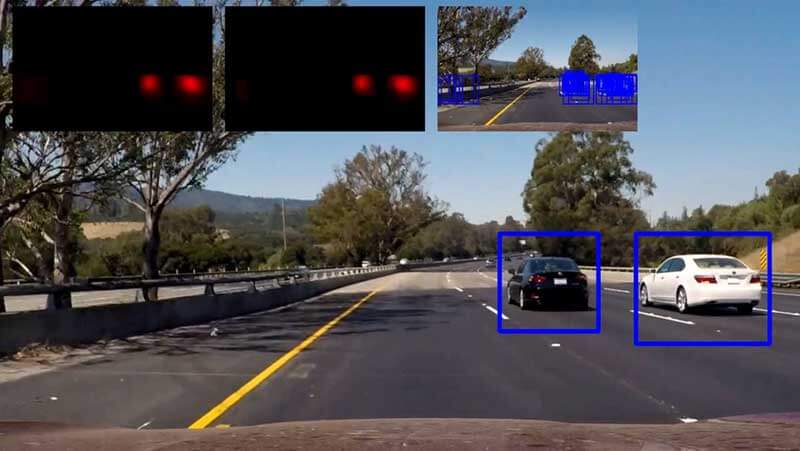- Smart pavement can detect vehicles and determine their location in real time
- Colorado will be the first US state to test the new smart pavement
- Not everyone is convinced this is a good idea
Our world is becoming increasingly smart and connected, but one aspect that’s been largely ignored by this technological revolution is road infrastructure. And we could really use some help in that area. According to the World Health Organization, lack of road safety is a major cause of mortality worldwide and responsible for as many 50 million injuries a year, with 50 per cent of people killed on the road being pedestrians, cyclists and motorcyclists. The WHO predicts that lack of road safety will be the 7th leading cause of death by 2030. These are extreme numbers of fatalities, despite our cars being safer and smarter than ever.
One way to address this problem is to make our roads smarter as well. Smart roads can significantly improve roadway safety by communicating with drivers throughout their journey, notifying them about road conditions, warning them about potential issues ahead, helping them choose the safest, most efficient routes, and even contacting emergency services if they get into an accident.
Smart pavement can detect vehicles and determine their location in real time
The Kansas City tech startup Integrated Roadways recently unveiled a new smart pavement concept that could significantly improve roadway safety. “Smart pavement is a factory-produced pavement system that transforms the road into a sensor, data and connectivity network for next-generation vehicles,” says Tim Sylvester, the founder, chief executive, and president of Integrated Roadways. Instead of traditional asphalt paving, the new concept uses upgradeable, factory-made concrete slabs featuring a digitiser layer that acts similarly to a touchscreen and enables the roadway to detect vehicles as they pass over it, measure their speed, and pinpoint their location in real time. The roadway then uses the built-in routers to transmit this information to the nearest data centre, inform drivers about the safest, most efficient routes, warn them about potential problems ahead, or call emergency services in case of an accident.

Colorado will be the first US state to test the new smart pavement
The Colorado Department of Transportation recently announced that it’s awarded a $2.75 million contract to Integrated Roadways, which will see it build an 800-metre-long section of smart pavement on a particularly dangerous stretch of Highway 285, about 130 kilometres southwest of Denver. This smart section of road will be able to detect when a car has run off the pavement and automatically notify authorities when that happens, allowing them to respond in a more timely manner and save lives. “The pavement would be able to act like the tracking pad on your mouse, knowing the speed and direction that a vehicle travels across it is going,” explains Peter Kozinski, the director of the RoadX program at the Colorado Department of Transportation. “If a vehicle leaves the pavement at a trajectory and speed that suggests they left unsafely, the pavement would notify emergency responders that someone had ran off the road.” This information will also help authorities to make changes to road infrastructure so that future incidents can be avoided.
Not everyone is convinced this is a good idea
As is usually the case when data collection is involved, there are some privacy concerns. What kind of data will be collected? Who will have access to it? Will we be able to opt out if we don’t want to share our data? According to Tom Sylvester, their smart pavement won’t collect any personally identifiable information. It will only collect data about the make and model of the vehicle, which will be determined based on its axle width, axle length, weight, and weight distribution. “We aren’t going to say this is John Smith’s Lexus, but we can say that this is a Lexus,” explains Sylvester.
There are other concerns as well. Charles Schwartz, a professor of civil and environmental engineering at the University of Maryland, is questioning the reliability of the new technology. What happens if one of the slabs is damaged? How does it affect the rest of the network? The price is also a major concern. According to Integrated Roadways, their smart pavement will cost twice as much as conventional roads, or about $4 million per lane per mile. Can we actually justify such high costs? “In terms of large-scale implementation across the highway network, the costs would be high so the technology would have to prove that it can make a real difference to warrant that kind of investment,” says Schwartz.
It was a long time coming, but it seems that our roads will soon also join the smart revolution. In the future, they’ll no longer just take us from point A to point B, but also communicate with us throughout our journey and keep us safe. Smart road technologies have the potential to make driving a much safer and more enjoyable experience for everyone involved, which should be more than enough to quell some of the privacy concerns that have been raised recently.
Share via:


